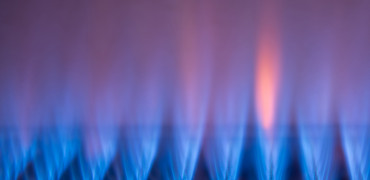As summer unfurls and the holiday season beckons, many tenants are planning their getaways, eagerly anticipating a respite from daily routines.
For housing professionals and social landlords, this period presents a unique, often overlooked opportunity: the potential for timely upgrades to heating systems.
The question arises, do you know when your tenants are going on holiday? If so, this could be the perfect time to make crucial heating improvements while they are away.
Keeping an open line of communication with tenants about their holiday plans can be mutually beneficial. Knowing when tenants are absent allows for the scheduling of maintenance work without disrupting their daily lives.
This foresight is particularly advantageous for tasks as invasive and essential as upgrading heating systems.
By conducting these upgrades during the tenant’s absence, landlords can avoid inconveniences that might arise from having no heating or hot water for a period.
Do you know when your tenants are going on holiday?
Benefits of upgrading heating
Upgrading heating systems is not just about improving comfort; it has significant financial and environmental implications.
Modern heating systems are far more energy-efficient than older models. This efficiency translates into reduced energy bills for tenants and lower carbon footprints, aligning with broader sustainability goals.
For landlords, efficient heating systems can enhance the property’s value and appeal, making it easier to retain current tenants and attract new ones.
Minimising disruption
A primary concern for any maintenance work is the potential disruption to tenants' lives.
Heating upgrades often involve shutting off the heating system, which can be highly inconvenient, especially during the colder months.
Scheduling these upgrades during the summer holiday period, when tenants are likely to be away, ensures minimal disruption.
This approach not only enhances tenant satisfaction but also allows maintenance teams to work more efficiently without the pressure of restoring services quickly.
Practical considerations
While the benefits are clear, implementing this strategy requires careful planning and consideration. Here are some practical steps to ensure success:
Tenant communication: Establish a system for tenants to inform you of their holiday plans. This could be through a simple online form or a regular update during tenancy reviews.
Advanced planning: Coordinate with your maintenance team to schedule heating upgrades during the identified holiday periods. Ensure that all necessary parts and equipment are available in advance to avoid delays.
Tenant notification: Provide clear, advance notification to tenants about the planned upgrades, explaining the benefits and the measures taken to minimise disruption. This transparency builds trust and cooperation.
Post-upgrade assurance: Once the upgrade is complete, conduct a thorough check to ensure the new system is functioning perfectly before the tenants return. Provide them with any new instructions or information about the upgraded system to facilitate a smooth transition.
Broader applications and benefits
The concept of utilising tenant holidays for maintenance tasks can be applied beyond heating system upgrades.
It can be extended to other essential but potentially disruptive maintenance activities such as plumbing, electrical rewiring, or even comprehensive refurbishments.
The key is to schedule these activities in a manner that minimizes inconvenience and maximizes efficiency.
This proactive approach demonstrates a landlord’s commitment to tenant comfort and welfare, fostering a positive landlord-tenant relationship.
Tenants are more likely to appreciate and cooperate with maintenance efforts when they see that their convenience is being prioritised.
In summary
As housing professionals and social landlords, the wellbeing of your tenants should always be a priority.
Utilising the holiday period for essential heating upgrades is a strategic move that benefits both parties. Tenants enjoy a seamless, improved living experience upon their return, while landlords can enhance the property’s value and sustainability profile.
Incorporating renewable heating solutions, such as heat pumps, during these upgrades further aligns with environmental conservation efforts and reduces long-term energy costs.
By taking advantage of tenant holidays, landlords can perform these necessary upgrades without causing disruptions, thereby fostering a positive relationship with tenants.
This proactive approach demonstrates a commitment to tenant welfare and environmental responsibility, making properties more attractive to current and prospective tenants.
Additionally, staying ahead of maintenance needs during less disruptive periods ensures that properties remain in optimal condition, preventing more extensive issues down the line.
So, as the holiday season approaches, ask yourself: do you know when your tenants are going on holiday? If the answer is yes, it’s time to plan those much-needed heating upgrades. After all, holiday time should be heating time.
Joe Bradbury is digital editor of Housing Association magazine




